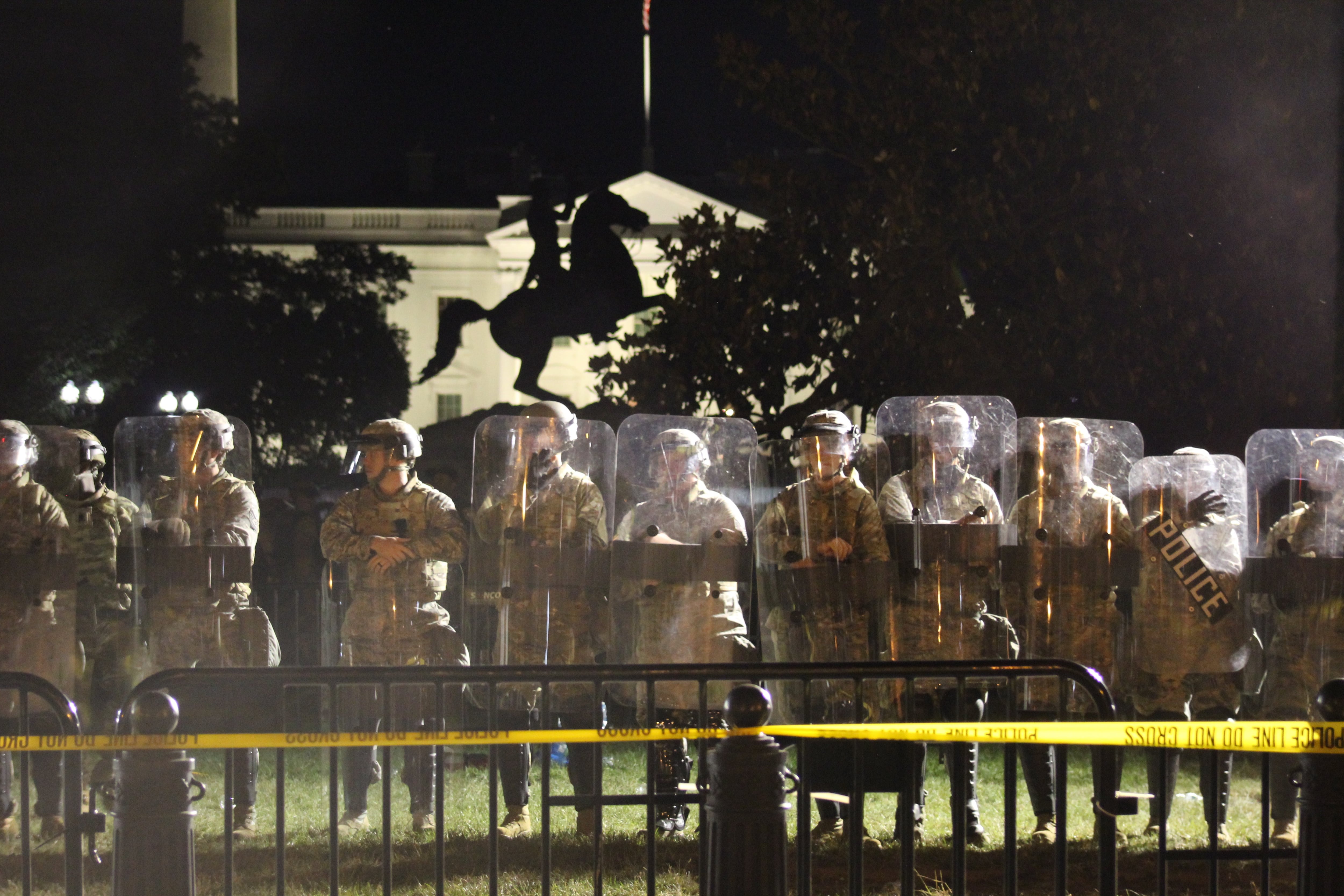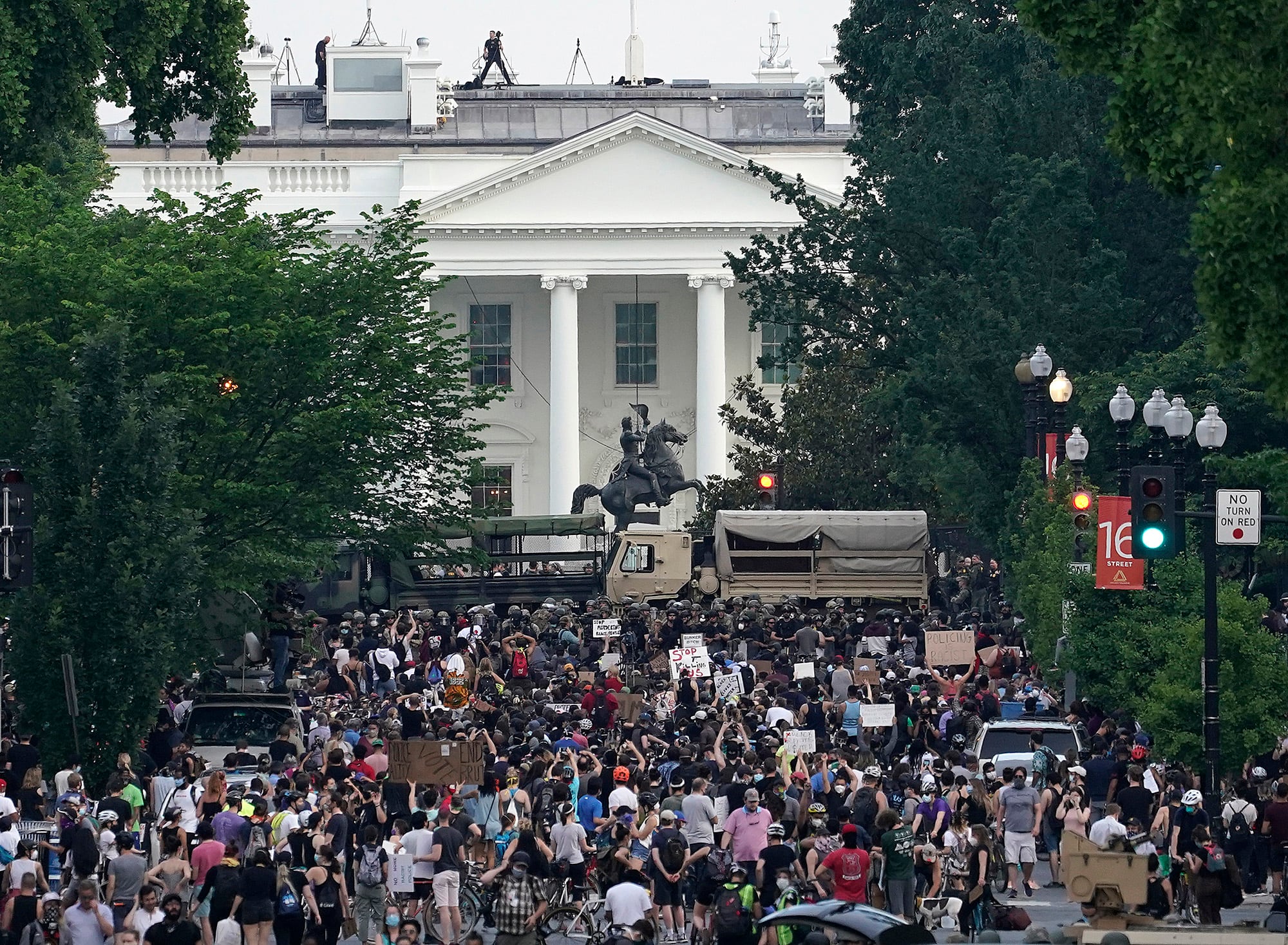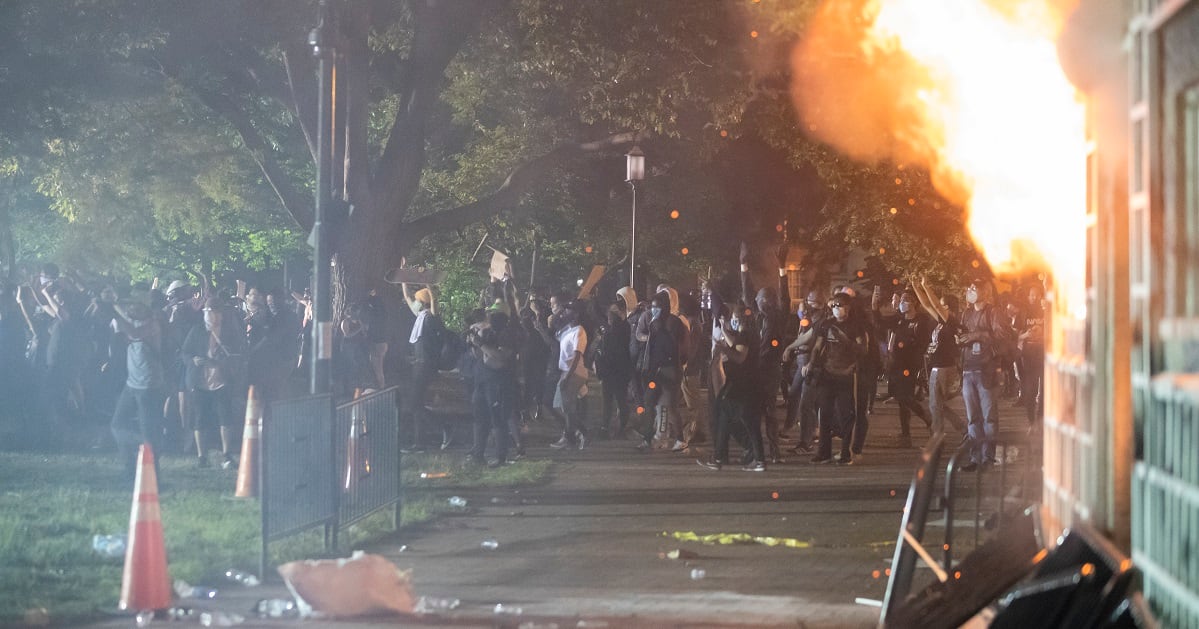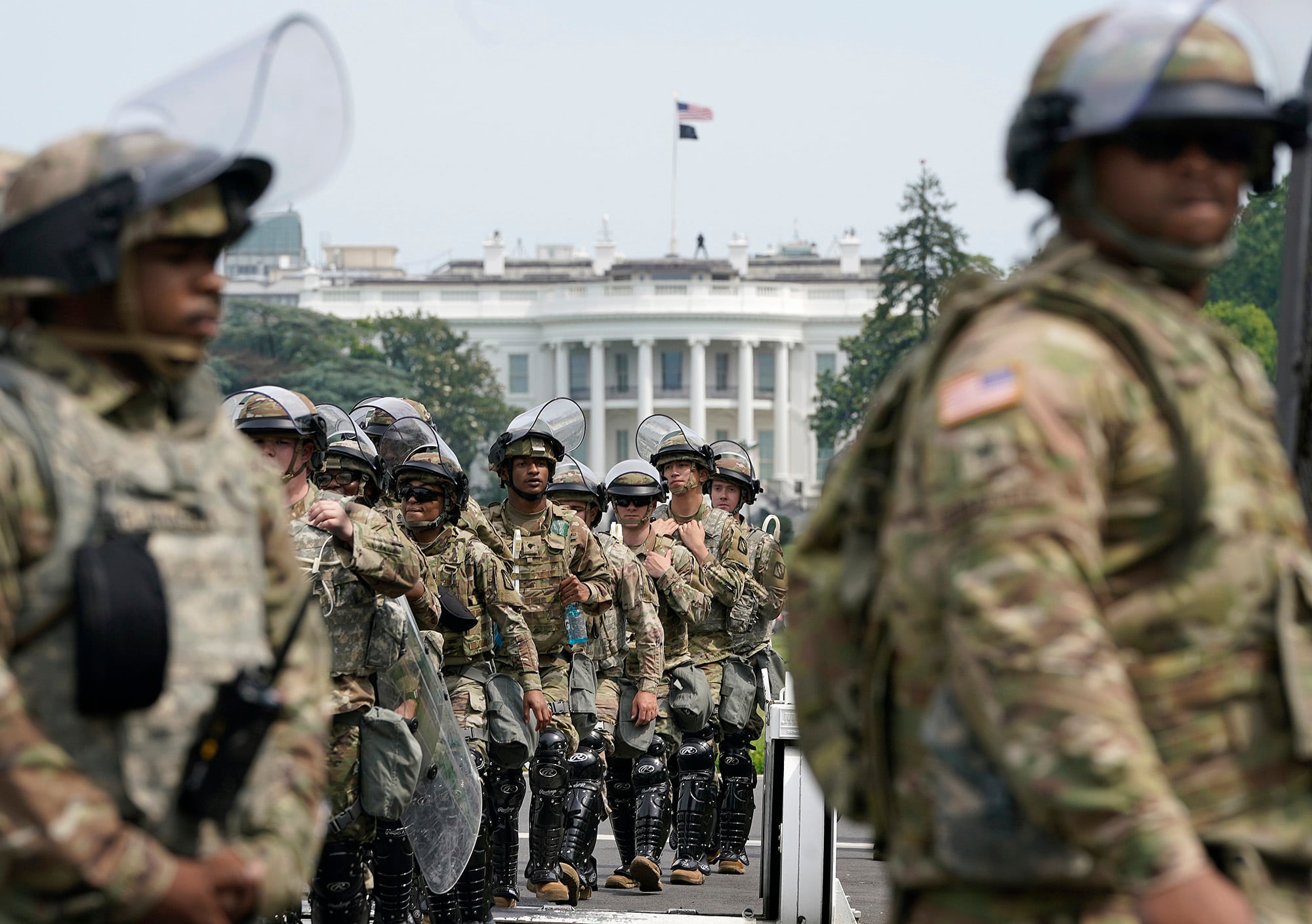WASHINGTON — Members of the Washington, D.C., National Guard lacked clear guidance and didn’t fully understand how to appropriately use helicopters during the civil unrest in the city last June when one of the aircraft flew very low over a crowd, a military investigation has concluded.
Army officials said Wednesday that “a number” of service members received some type of administrative discipline, but they refused to provide any details. One Army official, who spoke on condition of anonymity to discuss personnel issues, said that no one was found to have committed any misconduct. Instead they were guilty of “performance shortcomings.”
The long-overdue report was triggered by widespread objections, including from Congress, after one of the D.C. Guard helicopters hovered low enough over protesters near the Capitol One Arena to create a deafening noise and spray protesters with rotor wash.
RELATED

Officials demanded to know why the D.C. Guard used one of the medivac helicopters to make such a “show of force” against the crowds gathered to protest the death of George Floyd at the hands of a police officer. And officials raised questions about whether proper approval was given to use the medical aircraft for the mission.
The report found that the use of medical helicopters was appropriate because of the ongoing emergency situation, as the protests got violent. Demonstrators set fires, broke store windows and stole items from the shelves and left police officers and Guard members injured.
But Army officials said the aircrews did not have clear guidance as they flew over the downtown area. They said some crew believed they were simply supposed to circle and observe the crowd, while others thought they were supposed to have a larger deterrence presence. The Army officials spoke on condition of anonymity to several reporters to describe details of the report.

The report, which was reviewed by the Army and the Defense Department’s inspector general, said that an analysis of FAA flight data found that one helicopter did hover below 100 feet near a crowd by the arena.
Army officials said there is now a very strict process to get approval for the use of aircraft for city events. And they noted that none have been used since the June incident.
The report also recommended improved planning, training and oversight of the Guard’s use of aviation in civil disturbance operations. And it called for a review of Army guidance to make sure it addresses any aviation questions.
RELATED

The release of the report comes in the midst of the murder trial of former Minneapolis Police Officer Derek Chauvin, who has been accused of killing Floyd during a confrontation last May when he pinned the Black man to the pavement with his knee for more than nine minutes.
Floyd’s death set off protests nationwide, including in Washington, D.C., where then-President Donald Trump encouraged authorities to get tougher to quash the unrest. An overpowering security force — officers from the FBI Hostage Rescue Team, the Secret Service, the Drug Enforcement Administration, the Bureau of Prisons and more than 2,000 National Guard troops — spread out across the city, creating a perimeter around the White House and protecting other national monuments.

John Whitley, acting secretary of the Army, said the service is refining its regulations to address the matter. And officials said changes are being made to training and other policies, including the adoption of a formal approval process for Army aviation missions around the capital.
The commanding general of the D.C. Guard, Maj. Gen. William Walker, initially launched an investigation into the matter. But the probe has languished for months as the Army, the Defense Department inspector general and others have reviewed it, and made some changes.
As an example, Walker initially concluded that the use of the medical aircraft was not appropriate. But subsequent reviews at higher levels changed that. The final report, Army officials said, found that there is no law prohibiting it and that it was permissible because of the emergency situation in the city.




